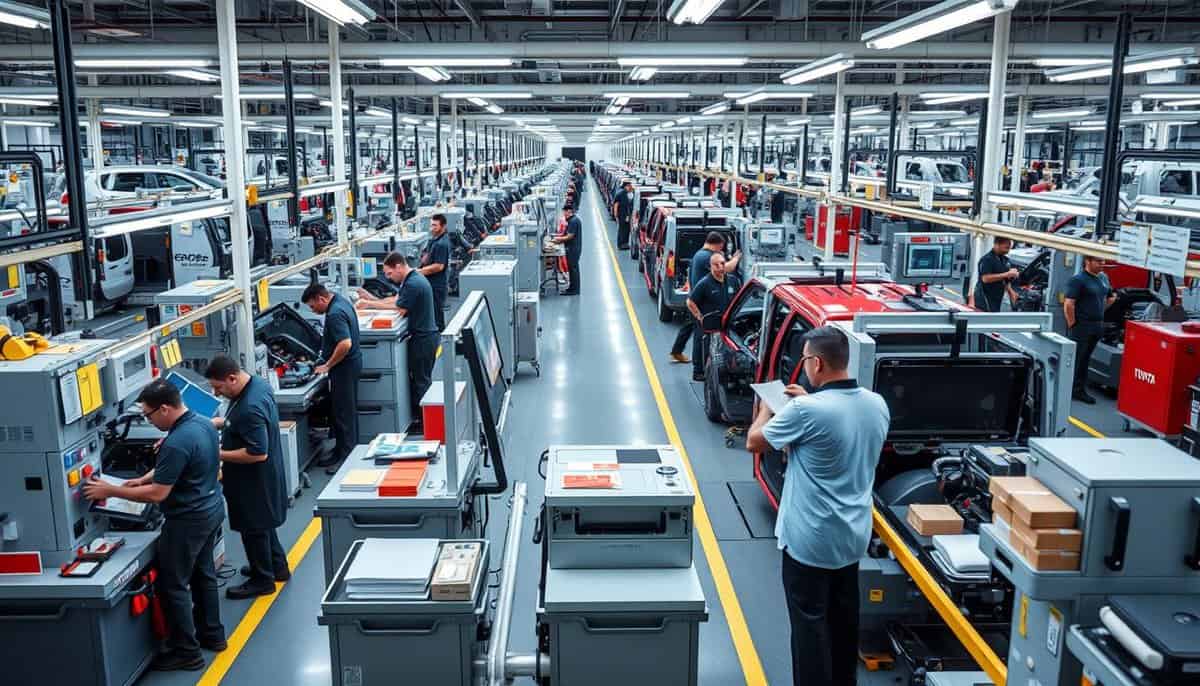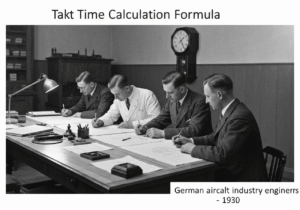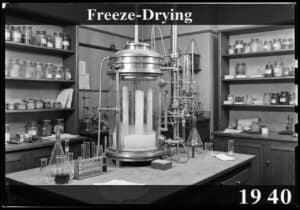هل تعلم أن سيارة تويوتا تحتوي على أكثر من 30,000 قطعة؟ ويتأكد نظام إنتاج تويوتا (TPS) من أن كل قطعة مناسبة تماماً. الأمر كله يتعلق بعدم إهدار أي شيء والحفاظ على الأشياء في الوقت المحدد. وقد وضع نظام TPS هذا منذ عقود المعيار في التصنيع المرن بسبب كفاءته.
TPS is more than just some tools. It’s a deep-rooted philosophy for Toyota’s manufacturing, covering everything from cars to services. It started with Sakichi Toyoda’s automatic loom. Then, Kiichiro Toyoda and Taiichi Ohno added their ideas. The two main ideas are في الوقت المناسب و جيدوكا. They help make sure parts are ready when needed and flaws are fixed right away.
من خلال الجمع بين نظامي Just-in-Time وJidoka، أصبحت تويوتا رائدة في صناعة السيارات. والآن، تستخدم الشركات في جميع أنحاء العالم نظام TPS للتحسين كل يوم. ويطلقون على ذلك كايزنوهو ما يعني "التحسين" باللغة اليابانية.
النقاط الرئيسية
- ويضمن نظام تويوتا للإنتاج (TPS) التنسيق الدقيق لـ 30,000 جزء من أجزاء السيارة البالغ عددها 30,000 جزء، مع التركيز على عدم إهدار أي جزء.
- يعتمد نظام TPS على ركيزتين أساسيتين: Just-in-Time وJidoka، مع التركيز على الإنتاج المتزامن وإدارة العيوب.
- تنبثق جذور TPS من نول ساكيتشي تويودا الأوتوماتيكي وتم صقلها من قبل شخصيات رئيسية مثل كيشيرو تويودا وتاييتشي أونو.
- تدمج الشركات على مستوى العالم مبادئ نظام خدمات TPS لتعزيز الكفاءة والجودة، مما يدل على الفعالية العالمية للنظام.
- يلعب التحسين المستمر، أو كايزن، دورًا محوريًا في نجاح واستمرارية أهمية خدمات دعم التجارة والخدمات التقنية.
- تؤكد TPS على احترام العمال، والقضاء على الهدر والاستفادة المثلى من القدرات الآلية والبشرية على حد سواء.
ملحوظة: تركز هذه المقالة على منهجية اللين على وجه التحديد. يمكن الاطلاع على العديد من مقالات منهجية اللين الأخرى على innovation.world :
مقدمة في نظام تويوتا للإنتاج
ال نظام إنتاج تويوتا (TPS) التي أنشأها تاييتشي أوهنو وإيجي تويودا في الفترة من 1948 إلى 1975. وقد غيرت طريقة صنع المنتجات من خلال التركيز على الكفاءة وتقليل الهدر وصنع المنتجات في الوقت المناسب. إن التعرف على تطور نظام TPS وأهدافه يوضح لماذا لا يزال نموذجًا في التصنيع حتى اليوم.
تاريخ TPS
صنع ساكيشي تويودا أول من صنع النول الأوتوماتيكي الذي وفر الكثير من المواد. فكرته قاد إلى التصنيع في الوقت المناسب، بدءًا من نظام TPS. حددت تويوتا الخطوط العريضة لـ TPS في كتيب صدر عام 1992، وتم تحديثه في عام 1998. ويهدف إلى إزالة الإجهاد وعدم الاتساق والهدر.
يعالج ثمانية أنواع من الهدر، بما في ذلك كثرة الإنتاج، والتأخير، ومشكلات النقل، والمخزون الزائد، والعيوب، وعدم استخدام العمال بشكل جيد.
الأهداف الأساسية
تتمثل الأهداف الرئيسية لنظام تويوتا للإنتاج في الحد من الهدر وتحسين التصنيع واستخدام المهارات البشرية بشكل كامل. ويتم تحقيق هذه الأهداف من خلال مبادئ "فقط في الوقت المناسب" (JIT) و"جيدوكا". فهي تضمن تطابق الإنتاج مع الحاجة، باستخدام نهج بشري للأتمتة.
تشجع TPS التحسين المستمر، ويطلق عليها اسم كايزنوتقدر الناس. هذا الاحترام للموظفين والشركاء لم يعزز كفاءة تويوتا فحسب. بل وضع أيضًا معيارًا للقطاعات الأخرى.
المبادئ الأساسية لنظام حماية الأرواح والممتلكات
يشتهر نظام تويوتا للإنتاج (TPS) بنهجه المبتكر في صنع الأشياء بكفاءة. فهو يركز على القيام بالأشياء بشكل أفضل، وصنع منتجات عالية الجودة، والتحسين الدائم. سنلقي نظرة على الأفكار الرئيسية لنظام TPS فقط في الوقت المحدد وجيدوكا.
في الوقت المناسب
تعد تقنية "فقط في الوقت المناسب" (JIT) أمرًا حاسمًا في مجال خدمات دعم التجارة والخدمات. يتعلق الأمر بمطابقة الإنتاج بشكل وثيق مع ما يريده العملاء بالفعل، مما يقلل من التكاليف والهدر. من خلال تصنيع المنتجات حسب الحاجة فقط، يضمن نظام JIT سير الأمور بسلاسة وكفاءة.
أحد المكاسب الكبيرة مع JIT هو تقليل الوقت اللازم لإعداد الآلات. تمكنت تويوتا من اختصار هذا الوقت من أشهر إلى ساعات أو دقائق فقط. ويساعد هذا التغيير السريع على صنع منتجات مختلفة دون إضاعة الوقت أو الموارد.
- تقليل الإنتاج الزائد والمخزون الزائد
- تعزيز الاستفادة من الموارد
- تسهيل التصنيع المرن
جيدوكا
Jidoka تعني "الأتمتة بلمسة إنسانية". يتعلق الأمر كله بالحفاظ على الجودة العالية من خلال السماح للعمال بإيقاف الإنتاج إذا كانت هناك مشكلة. وبهذه الطريقة، تكون فحوصات الجودة جزءًا من خطوات التصنيع، ولا تتقدم أي منتجات سيئة إلى الأمام.
تشجع Jidoka الجميع على اكتشاف الأخطاء وإصلاحها على الفور. فهي تبني فريقًا يهتم فيه الجميع ويتعلمون باستمرار. بالإضافة إلى أنه يساعد تويوتا على التخلص من الهدر من خلال حل المشكلات على الفور.
- تحسين جودة المنتج
- تمكين العمال
- التخلص من الهدر من خلال الحل الفوري للمشكلات

إن نظام "فقط في الوقت المناسب" و"جيدوكا" هما جوهر نظام تويوتا لخدمات التصنيع الشامل، مما يؤدي إلى طرق أفضل وأكثر كفاءة في صنع الأشياء. لا تساعد هذه الأفكار شركة تويوتا على العمل بذكاء أكبر فحسب، بل تشجع الجميع على تحقيق الجودة والمسؤولية.
| المبدأ | الجوانب الرئيسية | فوائد |
|---|---|---|
| في الوقت المناسب | الإنتاج حسب الطلب، والحد الأدنى من المخزون | تقليل الإنتاج الزائد، والتصنيع المرن |
| جيدوكا | الأتمتة بلمسة بشرية، ومراقبة الجودة | تحسين جودة المنتج وتمكين القوى العاملة |
تطبيق التصنيع اللين في خدمات الدعم الفني
يعد نظام تويوتا للإنتاج (TPS) مثالاً رائدًا على التصنيع الهزيل. وهو يعتمد على الإنتاج في الوقت المناسب (JIT) ومبدأ الاستقلالية (Jidoka). تركز TPS على كايزنأو التحسين المستمر. يقدّر هذا النهج التغييرات الصغيرة التي تؤدي إلى تحسينات كبيرة بمرور الوقت.
التحسين المستمر (كايزن)
كايزن هو أمر أساسي في خدمات الدعم الفني وهدفها المتمثل في التحسين المستمر. فهو يخلق ثقافة يقترح فيها الجميع تغييرات صغيرة. قد تبدو هذه التغييرات صغيرة، لكنها تؤدي إلى تحسينات كبيرة في الكفاءة والجودة. تركز كايزن أيضًا على الحد من الهدر والتأكد من استخدام جميع الموارد بشكل جيد.
تقنيات الحد من النفايات
الحد من النفايات هو المفتاح لـ التصنيع الهزيل في TPS. الهدف هو العثور على النفايات والقضاء عليها، أو مودا. يساعد تحليل العمليات في العثور على أوجه القصور وإصلاحها مثل المخزون الزائد والخطوات غير الضرورية والأخطاء. إن 5 ثانية الطريقة-سيري (الفرز) و سيتون (التنظيم) - يساعد في الحفاظ على نظافة وفعالية المساحات، مما يقلل من النفايات.
كانبان كنظام لمراقبة الإنتاج
كانبان هو نظام مرئي تستخدمه TPS لتحسين الإنتاج والتحكم فيه. يستخدم البطاقات للتأكد من تطابق الإنتاج مع الطلب. وهذا يجنّبك الإفراط في الإنتاج والتأخير وكثرة المخزون. كانبان يساعد على انتقال العمل بسلاسة عبر المراحل المختلفة، مما يجعل الإنتاج فعالاً ومتوازنًا.
| مفهوم الليونة | وصف | تنفيذ نظام دعم البرامج والمشاريع |
|---|---|---|
| كايزن | التحسين المستمر عن طريق إجراء تغييرات صغيرة وتدريجية | يشجع اقتراحات الموظفين للقضاء على الهدر وتحسين العمليات. |
| الحد من النفايات | تحديد الأنشطة غير ذات القيمة المضافة والتخلص منها | توظيف منهجية 5S، مع التركيز على إزالة أوجه القصور وتحسين الموارد |
| كانبان | نظام جدولة مرئي لإدارة سير العمل والإنتاج | يستخدم البطاقات للتحكم في الإنتاج، بما يتماشى مع مبادئ JIT لتقليل الإنتاج الزائد |
الفرق بين نظام اختبار الأداء التقني وأنظمة التصنيع اللين الأخرى
نظام تويوتا للإنتاج (TPS) هو نظام تويوتا للإنتاج (TPS) الرائد في التصنيع المرن داخل مجموعة تويوتا. ويشمل ذلك شركات مثل دينسو وآيتشي للصلب. أما التصنيع المرن، الذي اشتهر من خلال "الآلة التي غيرت العالم"، فهو مستوحى من نظام تويوتا للإنتاج المرن ولكنه يختلف في نهجه. وتساعدنا معرفة الفرق بين نظام TPS ونظام التصنيع المرن على فهم تأثيرهما على كفاءة التصنيع والإنتاجية.
معدلات الكفاءة: يُعرف نظام TPS بمعدلات كفاءته العالية. ويرجع ذلك إلى أنه يركز على حل المشاكل بسرعة وتحسين كل الوقت....
لقد قرأت 43% من المقال. الباقي لمجتمعنا. هل أنت عضو بالفعل؟ تسجيل الدخول
(وأيضًا لحماية المحتوى الأصلي لدينا من روبوتات الكشط)
مجتمع الابتكار العالمي
تسجيل الدخول أو التسجيل (100% مجاناً)
اطلع على بقية هذه المقالة وجميع المحتويات والأدوات الخاصة بالأعضاء فقط.
فقط المهندسون والمصنعون والمصممون والمسوقون الحقيقيون المحترفون.
لا روبوت، ولا كاره، ولا مرسل رسائل غير مرغوب فيها.
التعليمات
ما هو نظام تويوتا للإنتاج (TPS)؟
نظام تويوتا للإنتاج (TPS) هو طريقة معروفة لجعل الأشياء أفضل من صنع تويوتا. وهو يساعد على زيادة الكفاءة عن طريق إزالة النفايات وتحسين جودة المنتج. وتُعد مبادئ التصنيع المرن جزءًا منه، ويُستخدم في جميع أنحاء العالم في مختلف الصناعات.
كيف نشأ نظام تويوتا للإنتاج؟
بدأت TPS باختراع النول الأوتوماتيكي الذي ابتكره ساكيتشي تويودا والذي وفّر المواد. وسّع كيشيرو تويودا هذه الفكرة بإضافة التصنيع في الوقت المناسب. وأصبح هذا أساس TPS.
ما هي الأهداف الأساسية لخدمات دعم الفنيين؟
تهدف TPS إلى التخلص من الهدر وتحسين التصنيع واستخدام المهارات البشرية لصنع منتجات عالية الجودة بكفاءة. ويستخدم التصنيع المرن ومبادئ "فقط في الوقت المناسب" و"كايزن" للقيام بذلك.
ما هو JIT في الوقت المحدد (JIT) في TPS؟
يتعلق مبدأ "فقط في الوقت المناسب" (JIT) في نظام TPS بصنع الأشياء فقط عند الحاجة إليها وفي الوقت المناسب. يقلل هذا المبدأ من تكاليف المخزون ويجعل الإنتاج أكثر سلاسة وكفاءة.
كيف يختلف نظام TPS عن أنظمة التصنيع المرن الأخرى؟
نظام TPS فريد من نوعه لأنه يركز على "في الوقت المناسب" و"جيدوكا" معًا. فهو يهدف إلى الإنتاج في الوقت المناسب والجودة منذ البداية. قد تنظر الأنظمة الأخرى فقط إلى خفض الهدر أو تعديل الإنتاج.
ما هي بعض التحديات الشائعة في اعتماد خدمات دعم البرامج والمشاريع؟
قد يكون من الصعب بدء تطبيق خدمات الدعم الفني بسبب الاختلافات الثقافية والتكلفة وعدم رغبة الناس في التغيير. يحتاج النجاح إلى التفاني في تغيير الثقافة، والتدريب المستمر، ودعم القيادة.
هل لا يزال نظام اختبار TPS مناسبًا في الصناعات الحديثة؟
نعم، لا تزال خدمات الدعم الفني والتقني مهمة جدًا اليوم. فتركيزها على الكفاءة والمرونة والجودة العالية يعطي مزايا كبيرة. تتكيف TPS بشكل جيد مع التغيرات الاقتصادية والتكنولوجية الجديدة، مما يجعلها ذات قيمة في التصنيع والخدمات.
روابط خارجية عن نظام تويوتا للإنتاج اللين في تويوتا
المعايير الدولية
(حرك الرابط لرؤية وصفنا للمحتوى)
مسرد المصطلحات المستخدمة
Just In Time (JIT): استراتيجية إنتاج تهدف إلى تقليل تكاليف المخزون من خلال استلام البضائع فقط عند الحاجة إليها في عملية التصنيع، وبالتالي تقليل النفايات وزيادة الكفاءة.
Toyota Production System (TPS): منهجية تصنيع تركز على تقليل النفايات والتحسين المستمر وتدفق الإنتاج الفعال، والاستفادة من تقنيات مثل Just-In-Time و Jidoka لتحسين الجودة والكفاءة التشغيلية.

































كيف يمكن تكييف مبادئ TPS مع الصناعات غير التصنيعية؟
من التجربة، فإن اعتماد نظام تويوتا للإنتاج يمثل تحديًا كبيرًا بالنسبة لشركة غربية :)
نصيحة: استكشف كيف يمكن للنظام أن يتكامل بشكل أكبر مع التقنيات الناشئة مثل الذكاء الاصطناعي وإنترنت الأشياء
قراءة مثيرة للاهتمام، ولكن هل يستوعب نظام TPS مبادئ التصنيع الأخضر؟ وكيف تطورت مع الطلب المتزايد على الاستدامة؟
قراءة مثيرة للاهتمام، ولكن ألا تعتقد أن TPS قد يكون جامدًا جدًا بالنسبة للمصنعين الصغار؟ القدرة على التكيف أمر بالغ الأهمية، أليس كذلك؟
قراءة مثيرة للاهتمام، ولكني أشعر بالفضول لمعرفة كيف تتكيف TPS مع تغيرات السوق غير المتوقعة؟ يبدو أن المرونة هي المفتاح في صناعة اليوم.